A great Italian masterpiece brought to life as a woodcut by an English genius, one of the National Trust's finest treasures
We're taking a look at nine of the greatest objects on display in the National Trust's properties across Britain — today it's the astonishing carving at Dunham Massey.
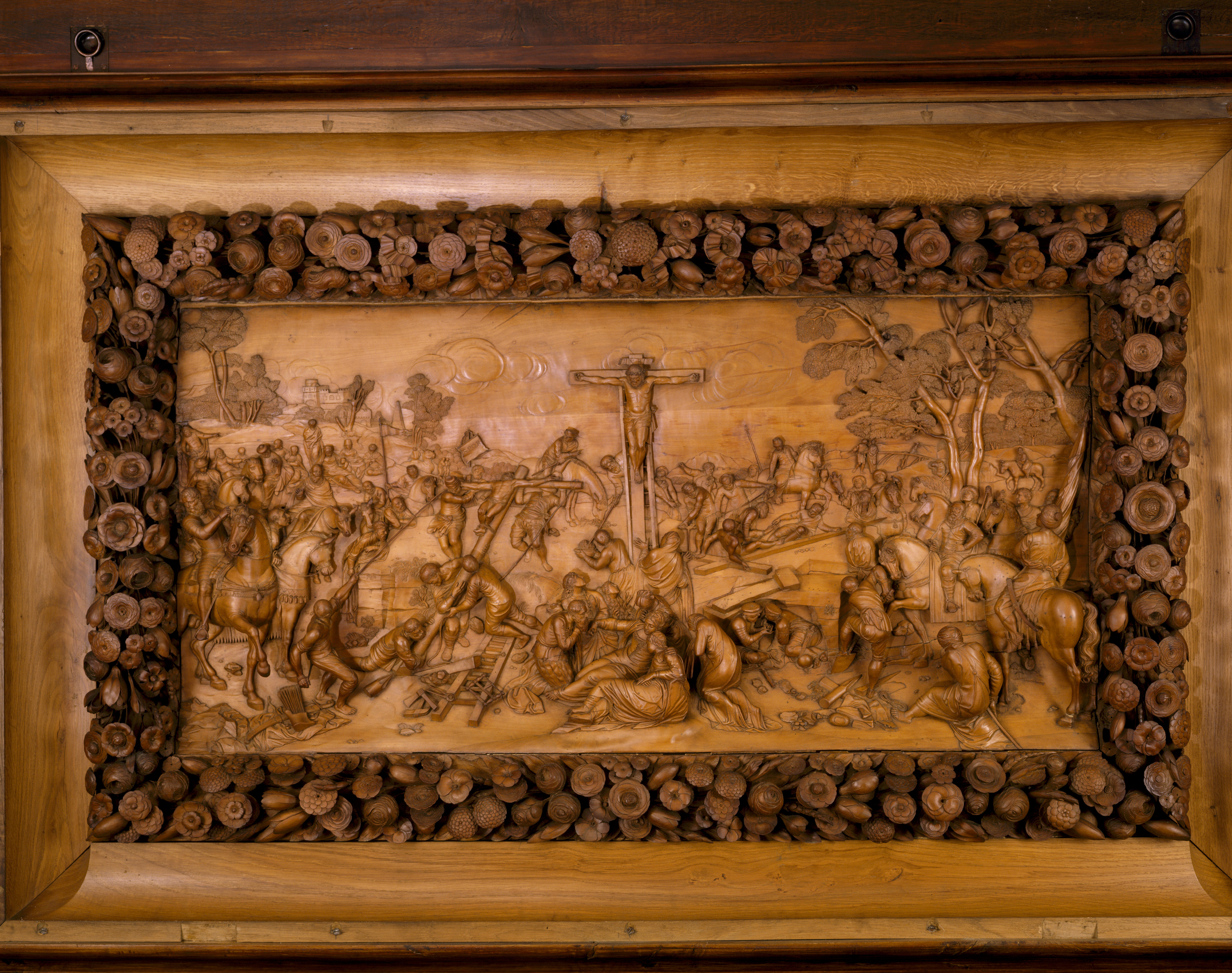

The National Trust’s collections are not only vast, but contain objects of astonishing beauty, quality and human interest. To coincide with the Trust’s 125 anniversary, we asked nine senior curators — including national experts in painting and sculpture, textiles, furniture and decorative arts — to choose their favourite object from among those in their care.
The Crucifixion (after Jacopo Tintoretto), wooden carving by Grinling Gibbons, at Dunham Massey, Greater Manchester
Chosen by Christopher Rowell, Furniture curator
Grinling Gibbons (1648–1721) gave his name to a whole school of naturalistic limewood carving. His tercentenary in 2021 will be marked by the Trust with exhibitions and a book. Prodigiously skilful and imaginative, he was born and, presumably, trained in Rotterdam, where wood carving was in demand for shipbuilding.
This panel after Tintoretto’s Crucifixion, ambitiously emulating the Old Master’s work, is encompassed by a tightly arranged garland resembling a contemporary Dutch picture frame. When finishing it in a remote rural shed near the Deptford docks in 1671, Gibbons was discovered by John Evelyn, who introduced him to Charles II. Evelyn’s diary brings the genesis and display of the panel vividly to life.
www.nationaltrust.org.uk/dunham-massey
READ MORE: A week-by-week guide to what to see at the National Trust's properties in 2020

Sign up for the Country Life Newsletter
Exquisite houses, the beauty of Nature, and how to get the most from your life, straight to your inbox.
Country Life is unlike any other magazine: the only glossy weekly on the newsstand and the only magazine that has been guest-edited by HRH The King not once, but twice. It is a celebration of modern rural life and all its diverse joys and pleasures — that was first published in Queen Victoria's Diamond Jubilee year. Our eclectic mixture of witty and informative content — from the most up-to-date property news and commentary and a coveted glimpse inside some of the UK's best houses and gardens, to gardening, the arts and interior design, written by experts in their field — still cannot be found in print or online, anywhere else.
-
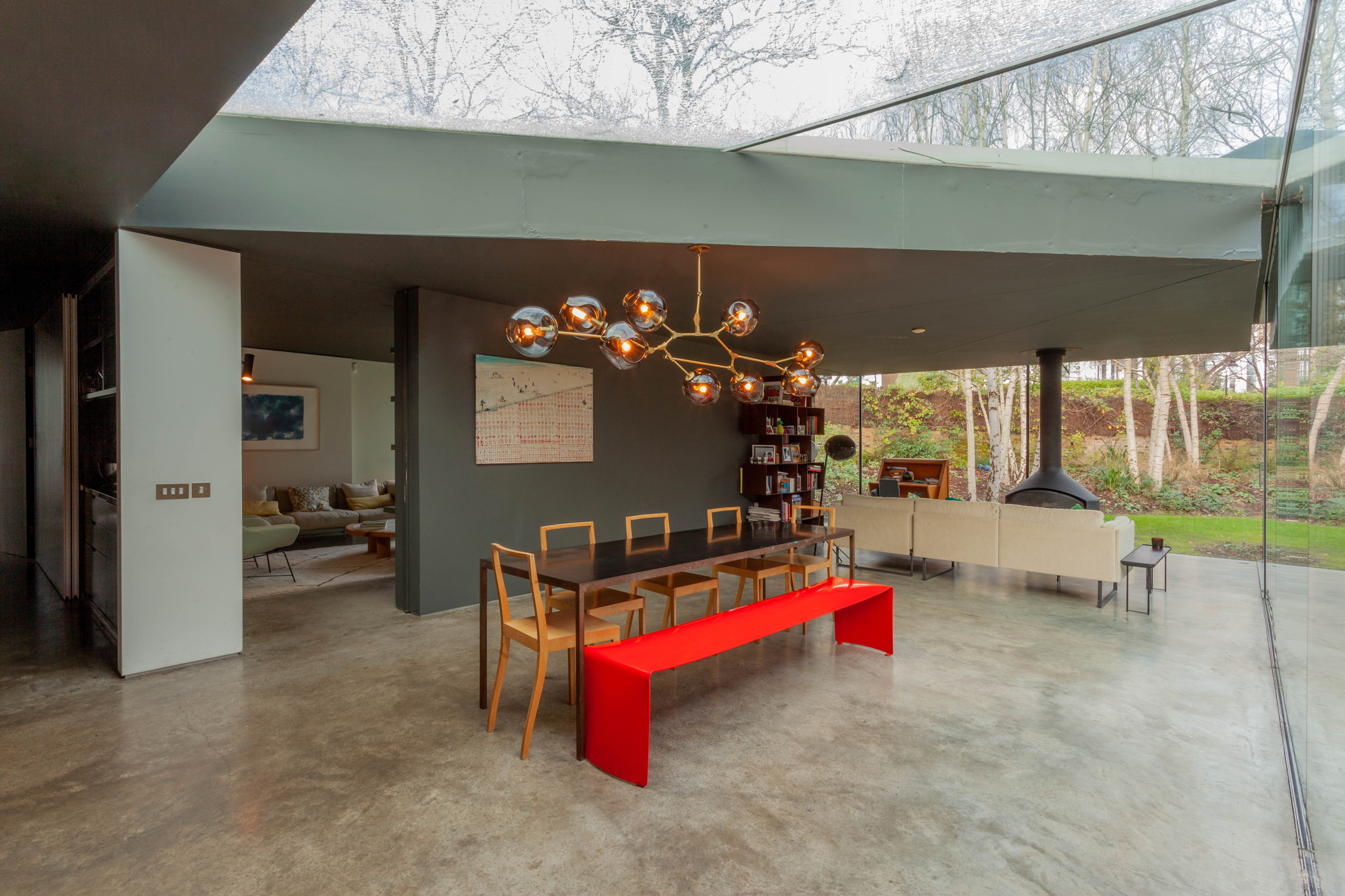 Hidden excellence in a £7.5 million north London home
Hidden excellence in a £7.5 million north London homeBehind the traditional façades of Provost Road, you will find something very special.
By James Fisher
-
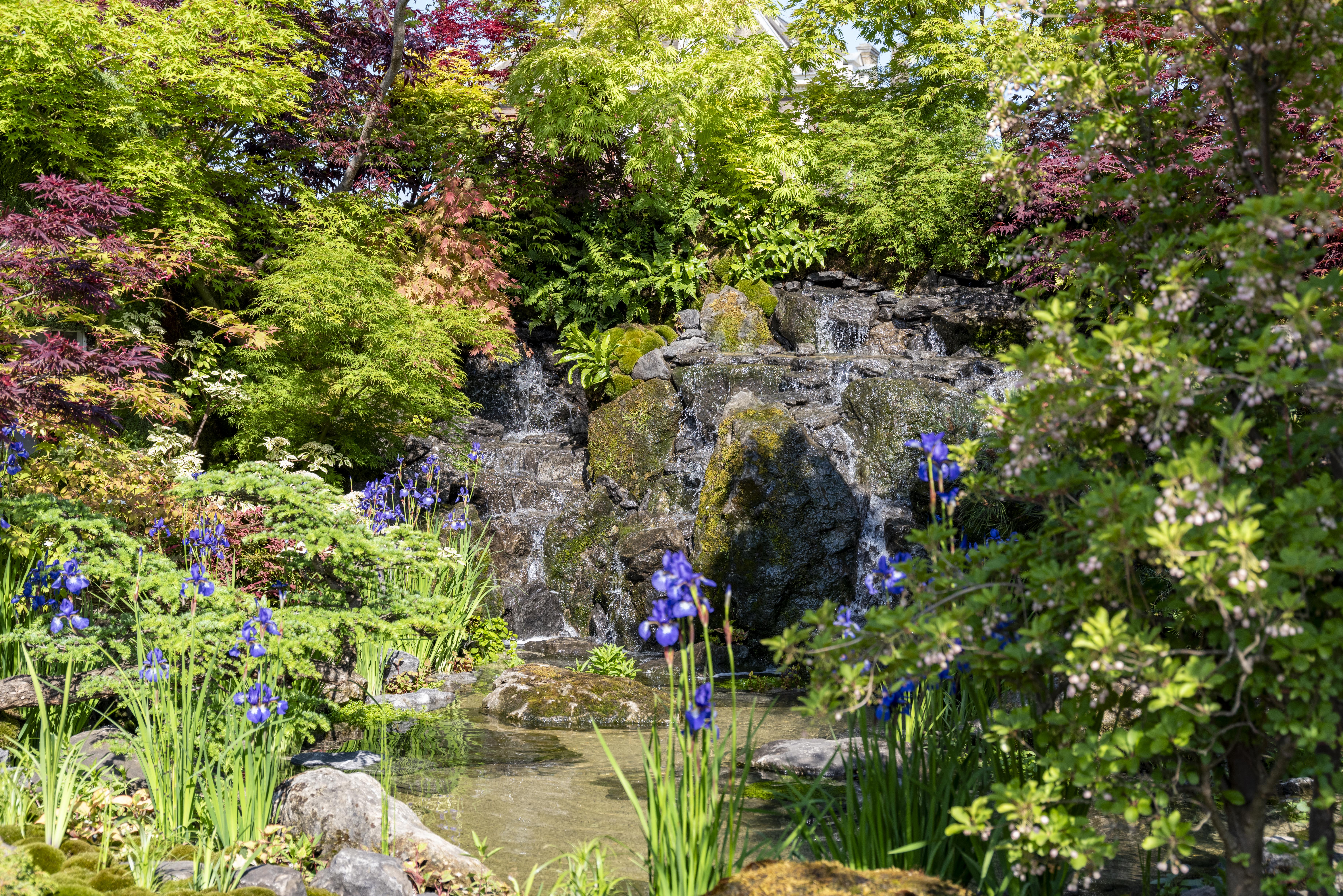 RHS Chelsea Flower Show: Everything you need to know, plus our top tips and tricks
RHS Chelsea Flower Show: Everything you need to know, plus our top tips and tricksCountry Life editors and contributor share their tips and tricks for making the most of Chelsea.
By Amie Elizabeth White
-
 The best regional art galleries in Britain, from Cornwall to Orkney
The best regional art galleries in Britain, from Cornwall to OrkneyWherever you are in Britain, you’re never far from an interesting gallery. Here we present an eclectic round-up of 45 places to see art outside the big cities.
By Country Life
-
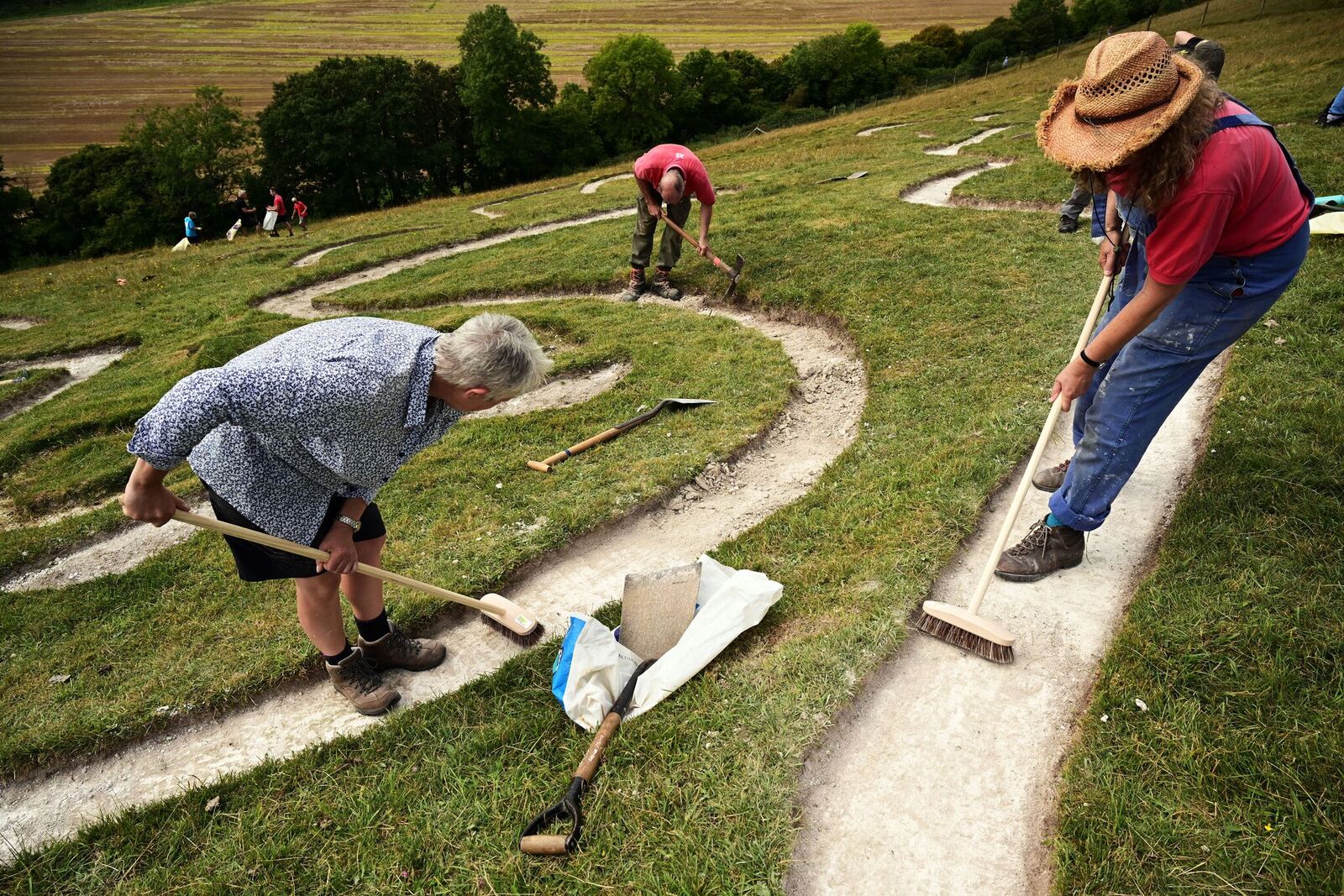 Cerne Abbas: Was the giant naked man an artistic act of defiance aimed at monks?
Cerne Abbas: Was the giant naked man an artistic act of defiance aimed at monks?New evidence suggests that the Cerne Abbas giant is much older than previously thought — and that its creation might have been 'a big two fingers' aimed at the Benedictine monks who had recently established an abbey.
By Annunciata Elwes
-
 Nine of the most astonishing objects you can see at National Trust properties, from priceless paintings to a wooden leg to a simple tunic with a heartbreaking tale to tell
Nine of the most astonishing objects you can see at National Trust properties, from priceless paintings to a wooden leg to a simple tunic with a heartbreaking tale to tellWe're taking a look at nine of the greatest objects on display in the National Trust's properties across Britain.
By Country Life
-
 The Ickworth Velazquez that's one of the very greatest treasures of the National Trust
The Ickworth Velazquez that's one of the very greatest treasures of the National TrustIn the final part of our series looking at the National Trust's finest treasures, we look at one of the very finest paintings in the Trust's ownership.
By Country Life
-
 A 15th-century altar cloth that survives in almost miraculous condition, one of the National Trust's greatest treaures
A 15th-century altar cloth that survives in almost miraculous condition, one of the National Trust's greatest treauresOur series looking at the National Trust's finest treasures looks at a pre-Reformation altar front from Cotehele which has survived to the present day.
By Country Life
-
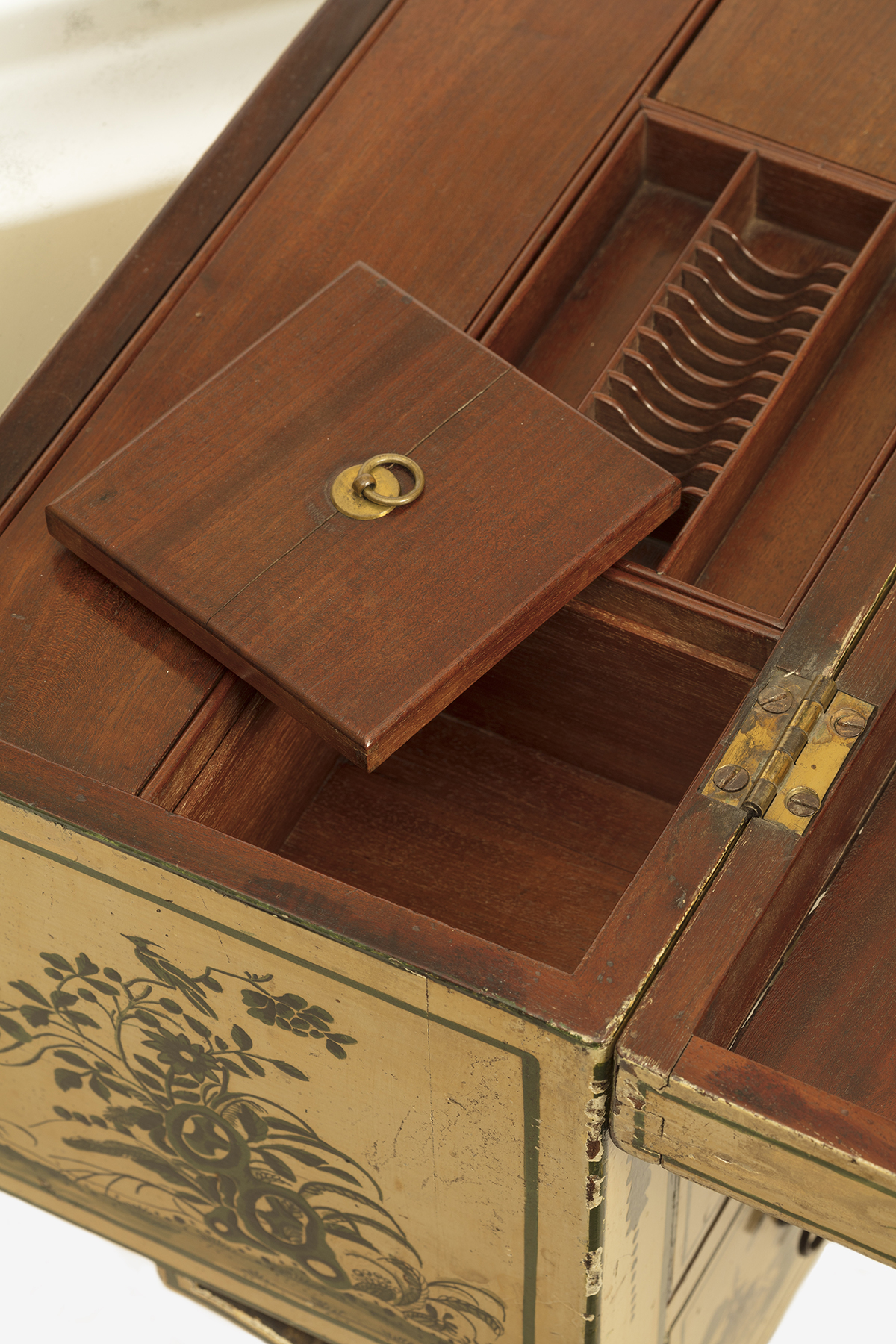 A Chippendale table that's 'the epitome of light-hearted Chinoiserie design', one of the National Trust's greatest treasures
A Chippendale table that's 'the epitome of light-hearted Chinoiserie design', one of the National Trust's greatest treasuresOur series looking at the National Trust's finest treasures takes aim at the Thomas Chippendale dressing table of Anglesey Abbey in Cambridgeshire.
By Country Life
-
 A pair of tureens that are a Rococo tour de force in silver, and among the finest treasures of the National Trust
A pair of tureens that are a Rococo tour de force in silver, and among the finest treasures of the National TrustWe're taking a look at nine of the greatest objects on display in the National Trust's properties across Britain — this time around we look at the incredibly intricate soup tureens of Ickworth.
By Country Life
-
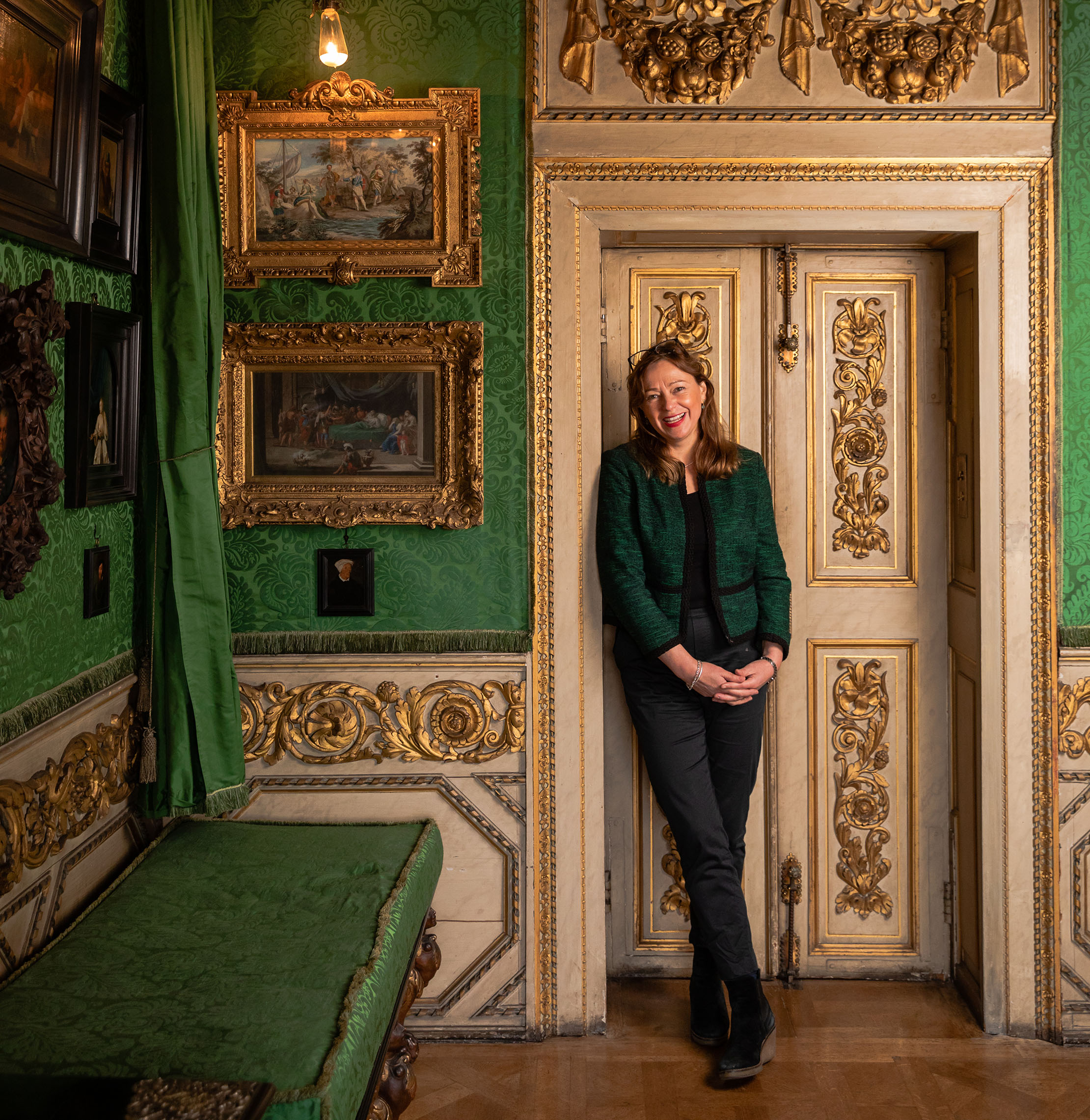 A man 'utterly consumed by the forces of love and passion', one of the National Trust's finest treasures
A man 'utterly consumed by the forces of love and passion', one of the National Trust's finest treasuresWe're taking a look at nine of the greatest objects on display in the National Trust's properties across Britain — this edition examines a painting that is small in size and large in meaning.
By Country Life